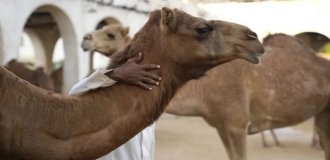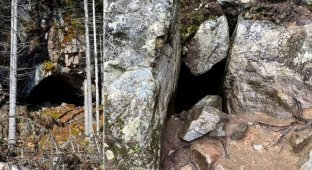Legendary wolf loyalty: what happens if a wolf loses his love? (11 photos)
The howl of wolves in the night often seems to us a symbol of wildness, anger and danger. But sometimes behind this animal song that penetrates to the bone, there is not hunting excitement at all, but a desperate gray sadness. 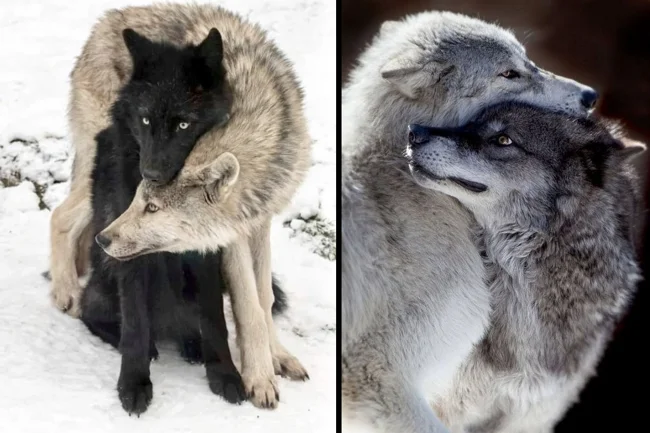
When there are no hands, you have to hug like this!
Wolves are one of the few animals that create strong couples and remain faithful to their companions forever. Family for them is literally the meaning of life, and the loss of a soulmate can break the strongest seasoned leader.
Once this happened in Yellowstone National Park. At that time, wolves had just been released into their native lands after almost 70 years of absence, and naturalists very carefully watched their every step. Thanks to this, it was possible to learn many details about the lives of the woolly ones. And especially - about their most interesting connections with each other. And some stories turn our ideas about what animals can feel upside down. 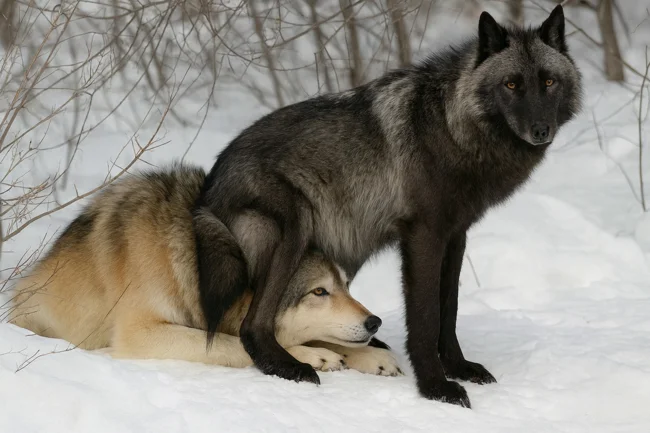
It's like with people: first he promises mountains of gold, and then he sits on your neck.
Female 42F, nicknamed Cinderella, became a legend of Yellowstone. She found her prince in the person of male 21M. Together they created the largest pack ever recorded by scientists. It consisted of 37 wolves! For several years they were the main rulers of the national park. But at one point Cinderella did not return. 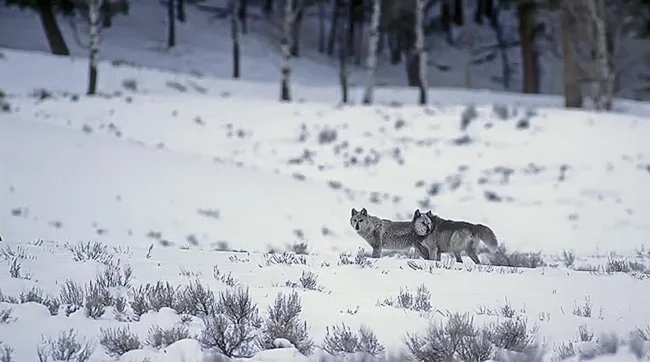
Cinderella and 21M together.
There was a terrible howl in the territory where the pack lived. The wolves were looking for their leader. Male 21M did not stop howling for a week. But Cinderella did not answer the call of her relatives. She was killed. Rangers found 42F's body torn to pieces on the border with the territory of the rival pack. Several months had passed. 21M had formed a pair with another female from his pack. It seemed that life had gone on as usual. But six months later, he disappeared. His bones were found in the place where Cinderella and her prince spent their summers every year. 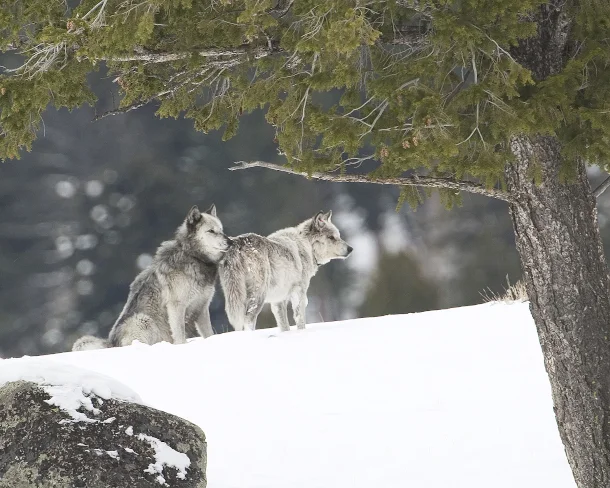
This is the last photo of the couple. Cinderella and 21M were nine years old. This is a respectable age for wild wolves.
A lot of scientific papers and a whole book were written based on their story, which gives us an answer to the question of what will happen to a wolf if it loses its "husband". Can predators from the dense forest really feel love and affection, just like people? Are they capable of yearning and even dying of grief? Let's dig a little deeper and figure out where scientific observations end and fiction begins. 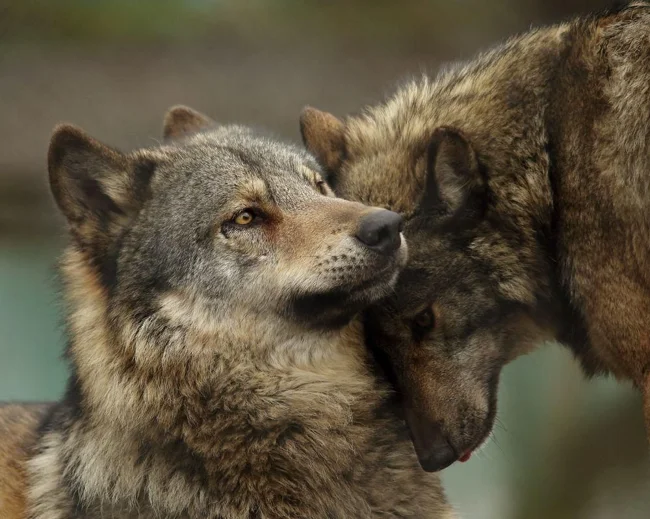
So, are wolf quotes about loyalty and family true?
So, what do we even know about a wolf pack? Many people still believe in the old theory that there are alphas, omegas, betas and other unseen animals in a pack. In fact, a pack is a large family with parents and their children of different ages. Mom and dad can, of course, be called "alphas", but with an important clarification. In the minds of most, an alpha is a cruel leader who keeps all members of the group in an iron fist. Parent wolves are not like that at all. They love their wolf cubs, protect them, care for them and teach them all the wisdom. Punishments, of course, happen, but only when justified. 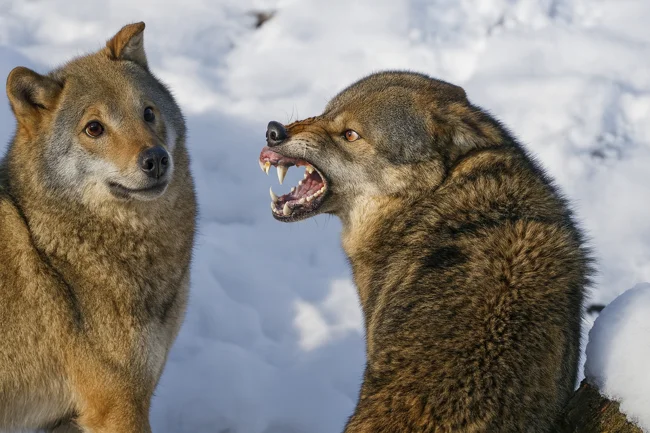
When you forgot to take her favorite chocolate bar.
The history of each new pack begins with a risk. At 2-3 years old, young wolf cubs face the question - to go into the unknown and try their luck or stay with their parents and live peacefully. No one drives them out of the family by force. Therefore, approximately 30% of all wolf cubs remain in their original pack forever. But there is a nuance: those who remain will always look after their siblings and will never be able to have their own offspring. These are the rules. Therefore, those who want to create their own family leave the parental lands and risk forming their own pack. 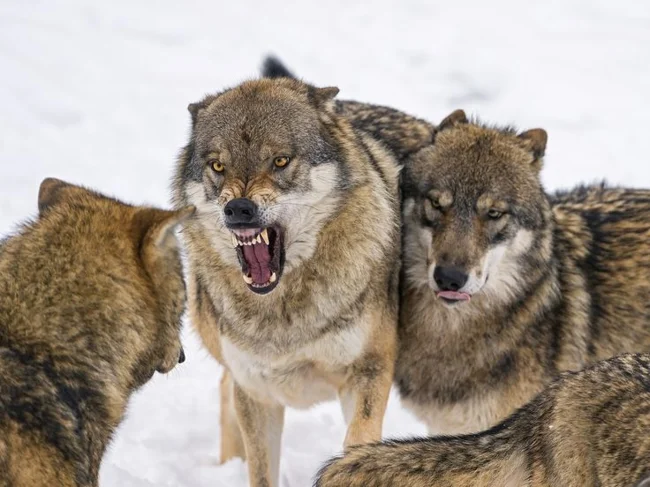
Very rarely do packs accept strangers into their ranks. If a stranger is accepted, he will not have the right to reproduce. At the very least, the main pair will suppress any attempts at unauthorized procreation.
Many young animals die from hunger, disease, hunting rifles and the teeth of other wolves during such journeys. Wolf packs do not tolerate strangers on their territories. The youngsters who survive and have tasted freedom continue to travel until one day they meet their other half. They do not have a magical ding. There is no such thing as “you’ll get used to it and fall in love.” Wolves prove their love with their actions. 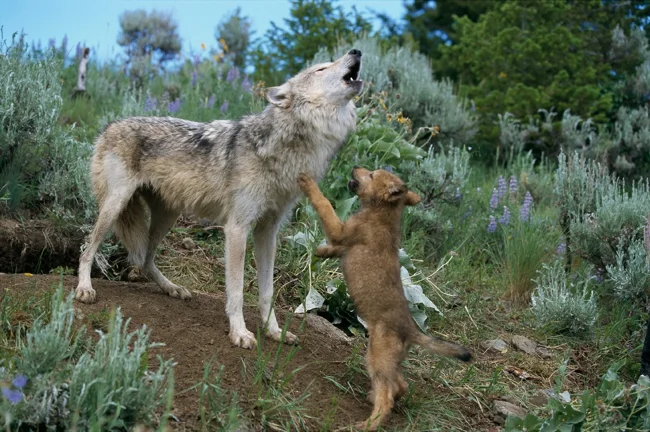
When he walks for bread for too long, but mobile phones have not been invented yet.
Before they tie their lives together forever, animals learn to get food together, defend themselves from enemies, conquer their territory, protect it and each other. This is a very cruel test of strength and not all couples can withstand it. About half of all newlyweds break up already in the second year of life - they do not even get to mating. Only those who have gone through all the joys and hardships together create a pack. 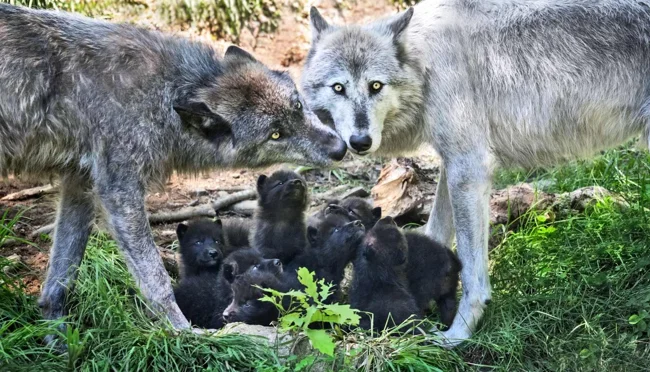
The main adversity is raising wolf cubs. At least six months must pass before the babies can stand on their paws and become members of the pack! But thanks to teamwork, almost all the wolf cubs from the litter survive.
Strong bonds are formed based on the events experienced. Scientists suggest that these bonds are the main link in the domestication of dogs. The canine brain is designed to remain faithful to each other and to members of its family. Just as Hachiko waited for his master, so the wolf will wait for his other half if it is missing. 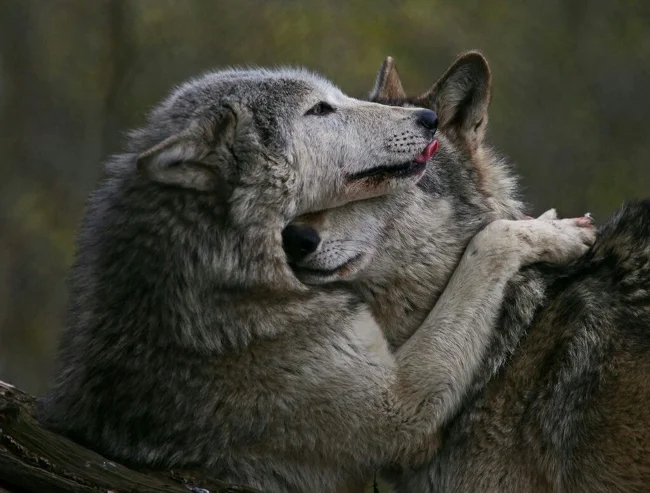
How would you experience loss if you had gone through thick and thin with your loved one?
In dogs, the stress of loss can result in depression. This is not "caught sadness", these are physiological changes in the body and brain. Most likely, the same thing happens to wolves. But a wolf cannot go to a psychologist and take a course of antidepressants. Therefore, the animal becomes apathetic, lethargic, its immunity and appetite decrease. And such people are not long for the wild. Someone experiences loss easier and faster. Such animals can try their luck and find a new partner. But there are those who yearn so much that they die of grief. Not literally, of course. But hunger and exhaustion can kill even a healthy predator. This is what happened to Betty and Stony. 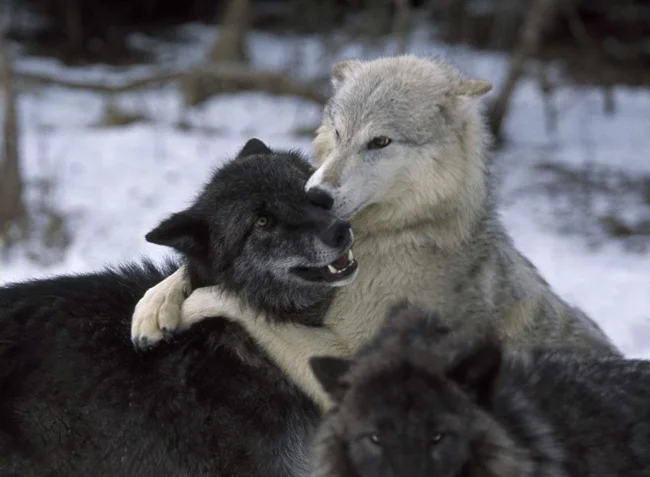
We cannot communicate in the language of wolves, but such gestures of love and affection are most understandable to us.
This couple lived in the Baif National Park (Canada). For eight years, they led a pack of 18 wolves. But at one point, Betty was found dead. The exact cause could not be determined, but studies showed that her immune system was weakened. Stony could not survive the loss. He left for his other half just two weeks later. His body was found not far from the place where Betty's body was found. Unlike his friend, Stony was completely healthy. No external injuries were found either. So it turns out that the cause of his death was a broken heart.






